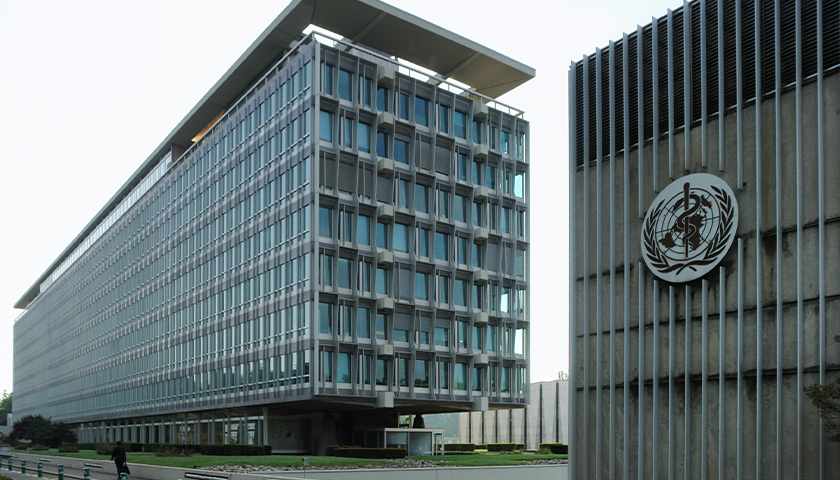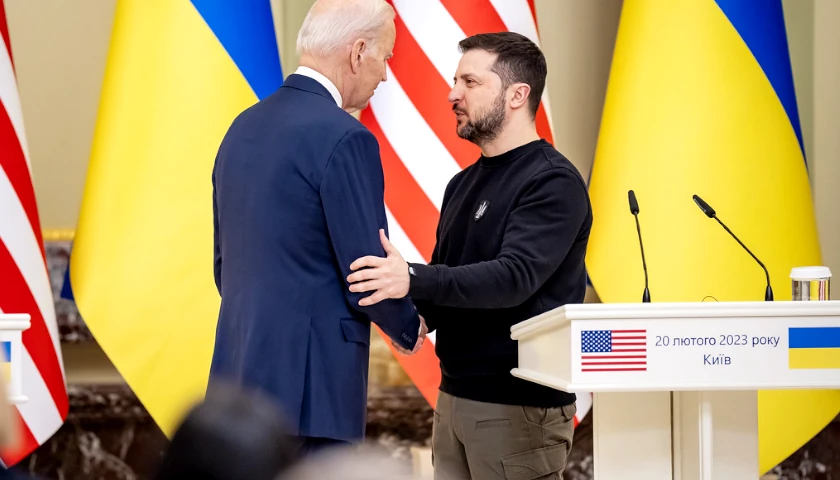by Jeffrey Tucker
The last 14 months elevated a global group of intellectuals and bureaucrats about which most people had previously cared very little. Among them, the ones who believe least in freedom entrenched their power, thanks to a big push by the lavishly funded but largely discredited World Health Organization.
The WHO tapped an “independent panel” (the fix was already in: the panel’s head is former New Zealand Prime Minister Helen Clark) to figure out what the world did right and did wrong in response to Covid-19. The final report has all the expected verbiage about the needs for more global coordination and largesse going to public health.
The key conclusion follows:
“Every country should apply non-pharmaceutical measures systematically and rigorously at the scale the epidemiological situation requires, with an explicit evidence-based strategy agreed at the highest level of government…”
In case you do not know by now, this is a euphemism for lockdown. The panel wants rigorous lockdowns, in every country, whenever government science advisors demand them. Forever.
That’s right: the thing that did not work, that spread poverty and disease the world over, bankrupted small businesses, the very practice that demoralized multitudes into substance abuse, locking them in their homes and crushing markets and enterprise, and ended in bankrupting governments themselves, just got a huge thumbs up from the World Health Organization.
The panel speaks about “evidence-based strategy” even as the evidence points against lockdowns. The U.S. offers a natural experiment. Texas opened fully amid warnings of impending mass death. Did not happen. The highest deaths per capita come from lockdown states, not open ones. California has been closed for a year, while Florida opened early: same results, except that Florida’s elderly population was better protected.
So it goes all over the world. Open Sweden has a better record than most of lockdown Europe. Taiwan stayed internally open and had almost no issues with Covid. Other states in the region completely closed, and also had no serious issues with Covid. There simply is no evidence that destroying human rights controls a virus. Also, countries and states without lockdowns preserved their economies.
One might expect that now would be the time to back down and admit it. Lockdowns were an enormous error, an experiment in treating people like lab rats, the folly of which was revealed in data showing zero relationship between better disease outcomes and lockdowns. If we really care about “evidence-based” policy, the world would never attempt such a thing again.
For most people, and despite the WHO’s pretense to control all things, disease is a matter of a doctor-patient relationship, an individual being cared for by a healthcare professional. Suddenly in 2020, disease mitigation became the business of governments globally, in cooperation with an intellectual subset that specialized in public health. They were infectious disease experts, epidemiologists, virologists, immunologists, and public health officials generally.
To be sure, not all people with credentials were celebrated, interviewed, and otherwise placed in the position of being in charge of our lives. Slots in prime time were generally reserved for those among them who were champions of “non-pharmaceutical interventions” or, the more toothless euphemism, “public health measures,” which is to say lockdowns. Once imposed, your kid’s school was closed. Your favorite bar or restaurant was toast. Your church was impassible. You couldn’t travel.
The World Health Organization, though never having endorsed such measures before 2020, now owns a report saying that the practice should apply for the foreseeable future in the event of a pandemic. And you can be certain that there will always be another pandemic, however you want to define that, simply because the world as we know it is and always will be full of pathogens.
From January 2020, I had an intuition that governments and certain epidemiological advisors were itching to try this experiment. Bill Gates had been on the speaking circuit for years warning about the coming killer pathogen and how the world should prepare and respond with what amounts to massive force. There were other interests at work here too, such as those who wanted a good dose of chaos to upset US politics. The media played a huge role. There was also old-fashioned political panic.
It will be years before we figure out how to weigh all the factors that led to the lockdown disaster, and years before we recover. The missed cancer screenings alone will haunt us for a very long time. The damage to children from missing a year of school, and being trained to treat people as pathogens, is essentially incalculable. Supply chains won’t be fully rebuilt for years. My own book Liberty or Lockdown examines the intellectual errors behind all of this but there is clearly more going on.
My worry for the better part of a year is whether and when governments would finally admit their failures. Sadly, this report commissioned by WHO suggests the answer: never. It’s a fascinating study in the psychology of ruling-class officials. Like Pharaohs and Kings of old, they wear the mask of infallibility, and fear anyone who dares take it off.
At the same time, the WHO cannot pretend that nothing at all went wrong. Thus does the finally report include a final section on the human rights elements of Covid-19, and offers this bitter if ultimately perfectory admission:
All too often, COVID-19 responses have been top down, and have failed to engage those affected, especially vulnerable and marginalised groups, undermining public health and human rights for all. At a time of unprecedented health and human rights crises, when accountability is needed more than ever, legal responses have curtailed parliamentary oversight, whilst accountability has also been reduced through a lack of transparency in COVID-19 responses, operational difficulties of review and oversight bodies, and disproportionate restrictions on civil society and the press.
That’s a good if guarded statement. What do we do about this? Lockdown again except this time in a more friendly way? Make governments nice instead of mean? It’s preposterous.
The popular anger and shock all over the world might in fact mitigate against another lockdown experiment in the future. Surely states who did this did not expect to utterly destabilize regional and global politics, much less bring a new generation of leaders into power on campaigns of freedom and anti-lockdown, as happened in Madrid.
Without such counterpressure from intellectuals and the public, make no mistake. They will try it again. And again, promising next time to do a better job of it. And never admit error.
– – –
Jeffrey Tucker is author of Liberty or Lockdown (AIER, 2020).





